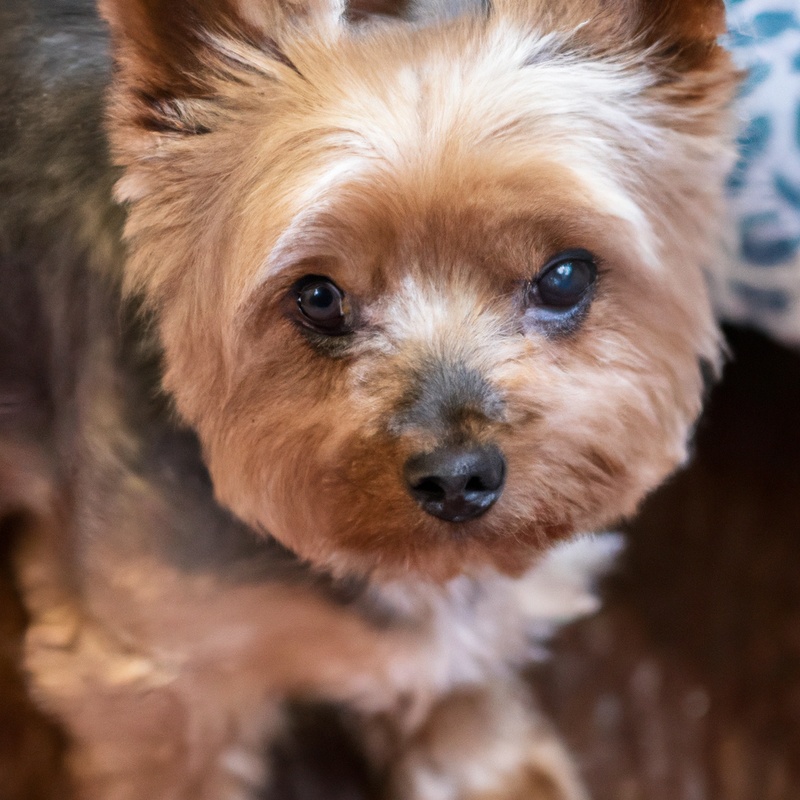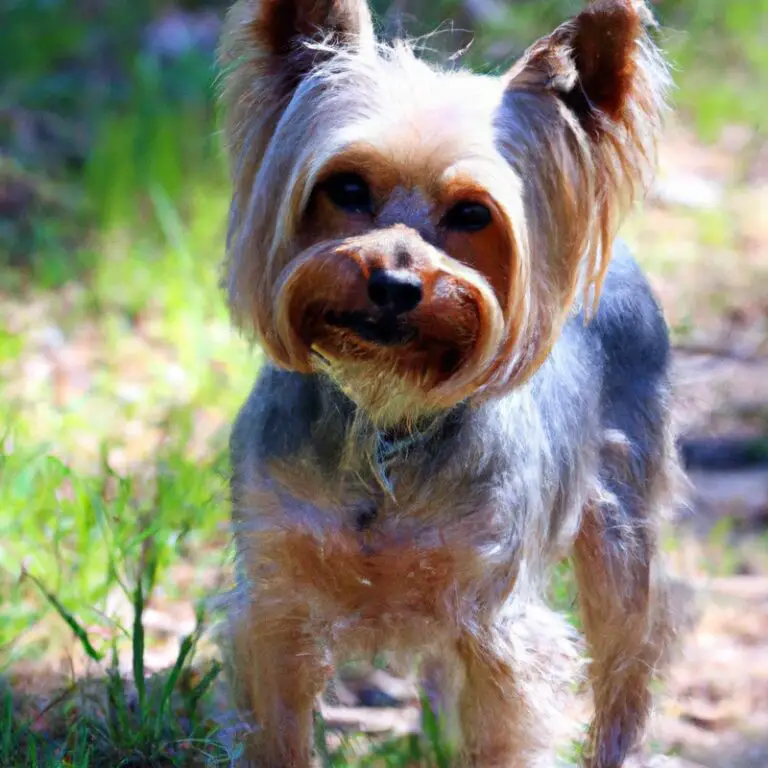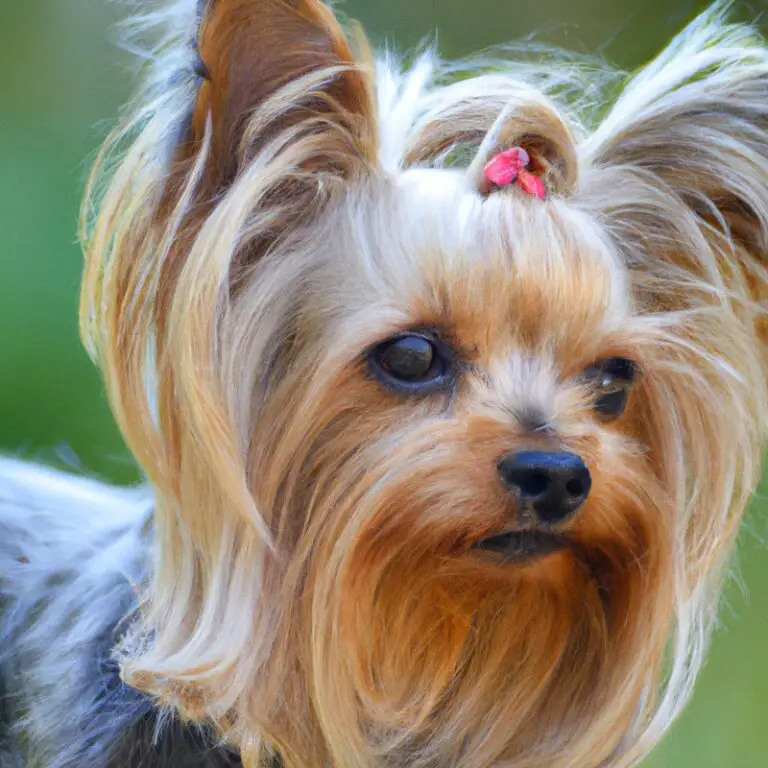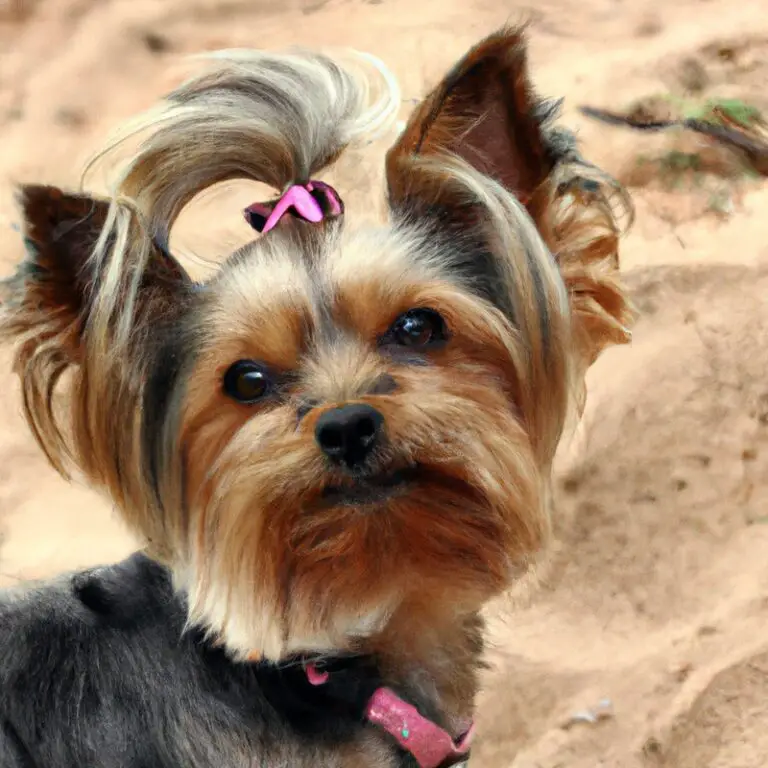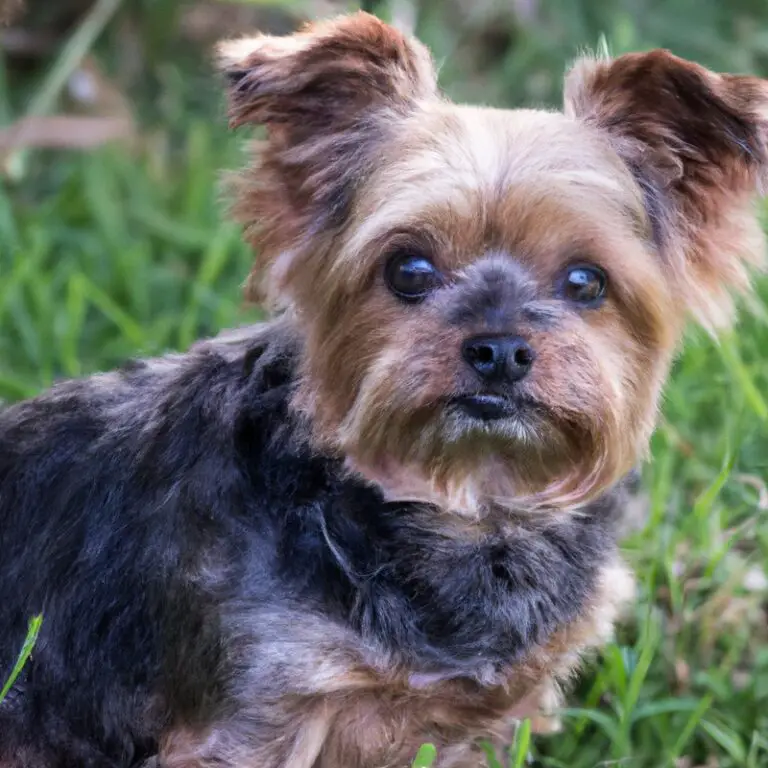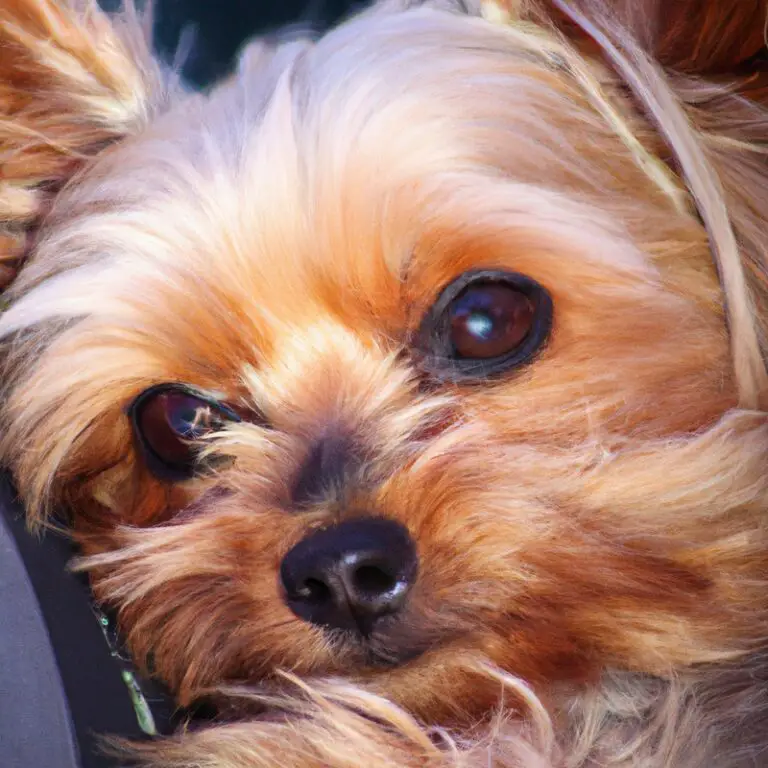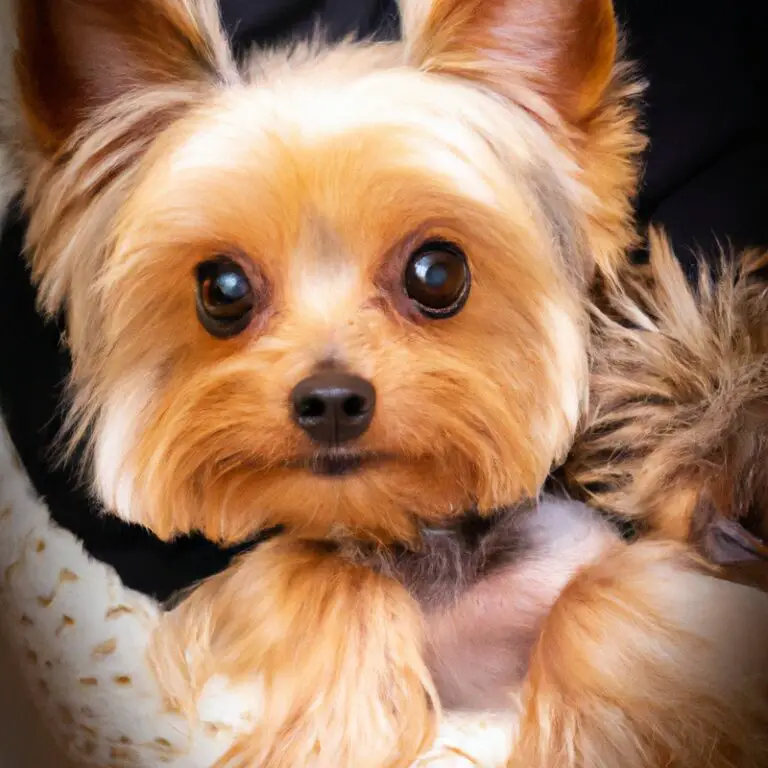Are Yorkshire Terriers Hypoallergenic?
Key Takeaways:
- Yorkshire Terriers are considered hypoallergenic for many people with allergies.
- The breed’s low-shedding coat produces less dander, a common allergen.
- It’s important to note that no dog breed is completely hypoallergenic.
- Individual allergic reactions may vary, so spending time with a Yorkshire Terrier beforehand is recommended.
Are you a dog lover who also suffers from allergies? If so, you understand the struggles of finding a furry companion that won’t leave you sneezing and wheezing.
That’s where hypoallergenic dogs come into play.
But what about Yorkshire Terriers? Are they a breed that allergy sufferers can safely cuddle with?
As a dog enthusiast with first-hand experience, I’m here to shed some light on this topic.
In this article, we’ll explore what it means for a dog to be hypoallergenic, the specific characteristics of Yorkshire Terriers that may trigger allergies, and how you can minimize allergic reactions if you decide to bring a Yorkshire Terrier into your home. So, let’s dive in and discover if Yorkshire Terriers are truly hypoallergenic!
| Yorkshire Terrier | |
|---|---|
| Hypoallergenic | Yes |
What does it mean for a dog to be hypoallergenic?
Understanding dog allergies
Understanding dog allergies is key to managing and mitigating their unpleasant symptoms. Allergies to dogs are caused by the proteins found in their dander, saliva, and urine.
These proteins can trigger allergy symptoms in sensitive individuals, such as sneezing, itching, watery eyes, and even asthma attacks.
It’s important to note that no dog breed or individual dog is completely hypoallergenic, as all dogs produce these allergenic proteins to some extent. However, some breeds, like Yorkshire Terriers, may produce fewer allergens and may be more tolerable for people with allergies.
Regular grooming, vacuuming, and keeping a clean home environment can help reduce exposure to allergens and alleviate symptoms.
Consulting with a healthcare professional or allergist can provide further guidance on managing dog allergies.
Common allergens in dogs
Common allergens in dogs can vary, but there are a few that tend to cause the most problems for allergy sufferers. One of the most common allergens in dogs is dander, which consists of dead skin cells.
Another common allergen is saliva, as dogs have a habit of licking themselves frequently.
Additionally, dog urine and feces can also trigger allergies in some people. It’s worth noting that some breeds may produce allergens in higher quantities, which can exacerbate allergic reactions.
If you or someone in your household has allergies, it’s important to be aware of these common allergens when considering bringing a dog into your home.
The importance of hypoallergenic dogs
The importance of hypoallergenic dogs is that they can be a great option for individuals who have allergies or sensitivities to pet dander. Having a hypoallergenic dog can allow these individuals to experience the joy and companionship of owning a dog without the discomfort of allergic reactions.
Hypoallergenic dogs have hair instead of fur, which reduces the amount of allergens they produce.
This can make a significant difference in improving the quality of life for people with allergies. So, if you or a loved one have allergies but still want a furry friend, a hypoallergenic dog could be the perfect choice.
Are Yorkshire Terriers hypoallergenic?
Overview of Yorkshire Terriers
Yorkshire Terriers, often called Yorkies, are small but mighty dogs that are loved for their adorable looks and lively personalities. These pint-sized canines have a distinct appearance with long, silky hair that hangs straight down to the ground.
While their small size makes them great for apartment living, Yorkies are known for their big personalities and feisty attitudes.
Originally bred in Yorkshire, England in the 19th century, Yorkshire Terriers were used as rat hunters in mines. Today, they are popular companion animals and are often seen strutting their stuff in dog shows.
Despite their tiny size, Yorkies have a lot of energy and need regular exercise and mental stimulation to stay happy and healthy.
In terms of grooming, Yorkies require regular maintenance due to their long hair. Their coat should be brushed daily to prevent mats and tangles, and regular bathing is necessary to keep them clean.
Additionally, their nails should be trimmed regularly, and their teeth should be brushed to maintain good oral health.
Yorkshire Terriers are known to be intelligent and trainable, but can sometimes be stubborn. Early and consistent training is crucial to ensure they grow up to be well-behaved members of the family.
While they make excellent companions, they are not suitable for families with very young children, as they can be easily injured due to their small size.
Characteristics of Yorkshire Terrier allergies
When it comes to Yorkshire Terrier allergies, there are a few key characteristics to keep in mind. First and foremost, Yorkshire Terriers have a double coat which can trap dander and allergens.
This means that they may not be the best choice for individuals with severe allergies.
Additionally, Yorkshire Terriers produce a lower amount of allergenic proteins compared to other dog breeds. However, it’s important to note that no dog is completely hypoallergenic.
Common symptoms of allergies to Yorkshire Terriers may include sneezing, coughing, itchy eyes, and skin irritation.
If you or someone in your household has allergies, it’s recommended to spend time with a Yorkshire Terrier to see if any allergic reactions occur before bringing one home.
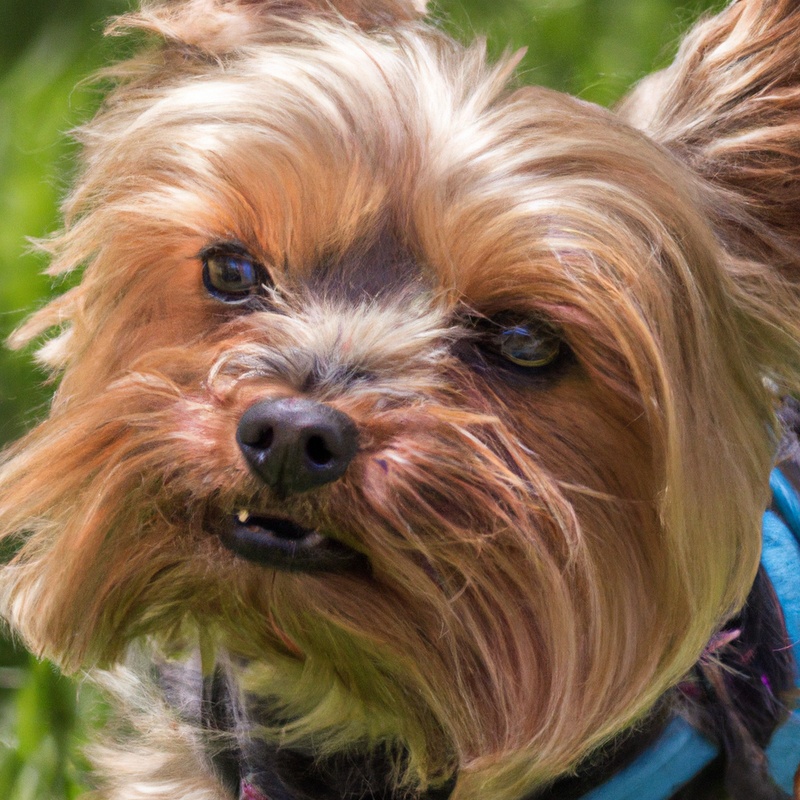
Yorkshire Terriers and dander production
Yorkshire Terriers are known for their luxurious, hypoallergenic coats. However, despite their hypoallergenic reputation, Yorkshire Terriers still produce dander.
Dander is the tiny particles of skin that dogs shed, and it is what triggers allergies in some people.
While Yorkshire Terriers produce less dander compared to other breeds, they are not completely hypoallergenic. The good news is that their non-shedding coats help to minimize the amount of dander that gets released into the environment.
Regular grooming is essential to reduce dander production in Yorkshire Terriers.
Brushing their coat frequently helps to remove loose hair and dander. Bathing them regularly with a gentle, hypoallergenic shampoo can also help keep dander at bay.
In addition to grooming, maintaining a clean living environment is crucial for allergy sufferers.
Regularly vacuuming, dusting, and washing your pet’s bedding can help reduce dander levels in your home. While Yorkshire Terriers may not be completely hypoallergenic, taking proper care of their coat and keeping your home clean can help minimize the impact of dander on allergies.
Always consult with an allergist or doctor to determine if a Yorkshire Terrier is the right choice for you or someone in your family who suffers from allergies.
Yorkshire Terriers and allergenic proteins
Yorkshire Terriers, like other dog breeds, produce allergenic proteins that can trigger allergies in sensitive individuals. These proteins are found in their saliva, dander, and urine.
When these substances come into contact with a person who is allergic, they can cause symptoms such as sneezing, itching, and watery eyes.
It’s important to note that no dog breed is completely hypoallergenic, including Yorkshire Terriers. However, some individuals with allergies may tolerate Yorkies better because they have hair instead of fur, which can help reduce the amount of allergens they release into the environment.
Additionally, regular grooming and keeping the living space clean can help minimize exposure to allergenic proteins.
If you have allergies, it’s a good idea to spend time with a Yorkshire Terrier before bringing one into your home to see how your body reacts to their presence.
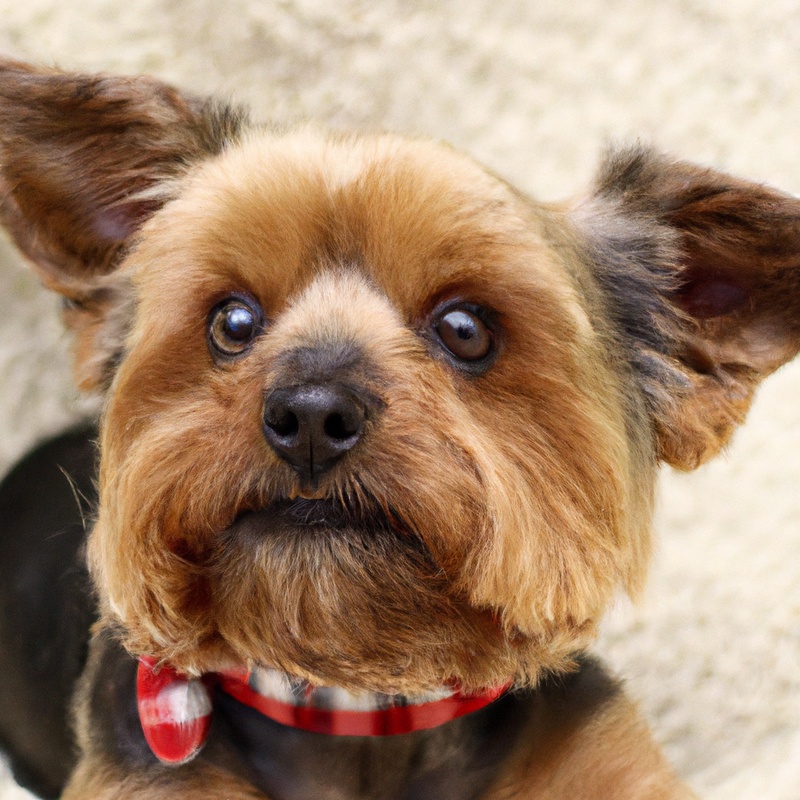
Potential reactions to Yorkshire Terriers for allergy sufferers
Potential reactions to Yorkshire Terriers for allergy sufferers can vary from person to person. Some individuals with allergies may experience symptoms such as sneezing, itching, watery eyes, or a runny nose when they come into contact with Yorkshire Terriers.
These reactions are primarily due to the dander or saliva of the dog.
Although Yorkshire Terriers are considered hypoallergenic to some extent, it’s important to note that no dog breed is completely allergen-free. If you have allergies, it’s advisable to spend time with a Yorkshire Terrier before making the decision to bring one into your home.
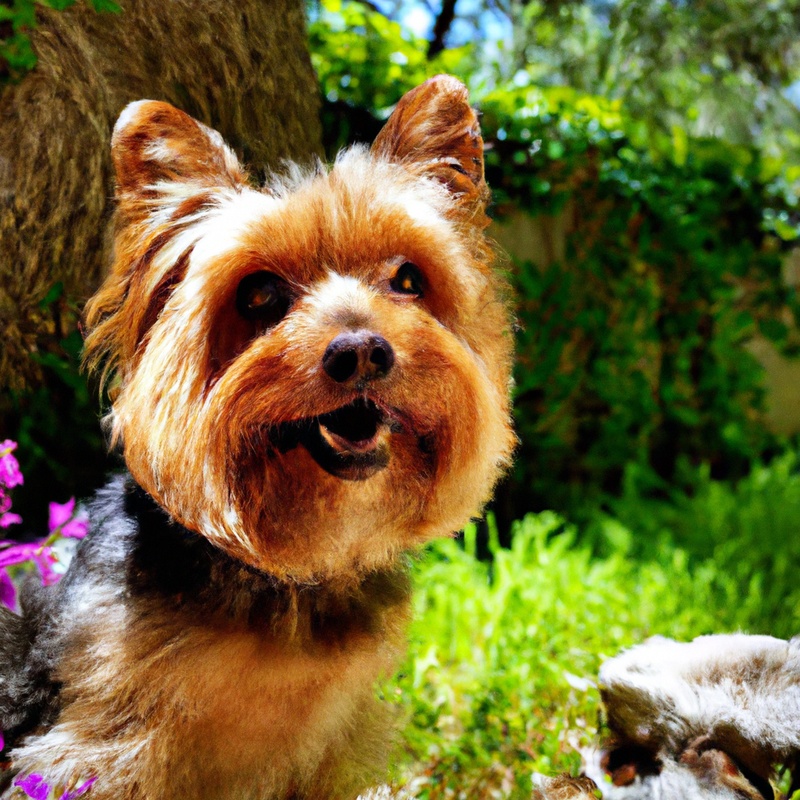
How to minimize allergies with a Yorkshire Terrier
Allergy-friendly grooming tips for Yorkshire Terriers
When it comes to grooming your Yorkshire Terrier, there are a few tips you can follow to help minimize allergies. First and foremost, regular brushing is crucial.
This helps to remove loose hair and dander, which can trigger allergies.
Use a brush specifically designed for Yorkies to keep their beautiful coat tangle-free. Another important tip is to bathe your Yorkie regularly, but not too frequently.
Monthly baths should be sufficient to keep them clean without drying out their skin.
Use a hypoallergenic shampoo that is gentle on their sensitive skin. Trimming your Yorkie’s hair is also essential.
Long hair can collect allergens, so keeping it short and neat can help reduce allergies.
If you’re not comfortable doing it yourself, consider taking your pup to a professional groomer. In addition to brushing, bathing, and hair trimming, you should also pay attention to their ears and teeth.
Clean their ears regularly to prevent dirt and wax buildup.
Brush their teeth regularly to prevent dental issues that can worsen allergies. By following these allergy-friendly grooming tips for your Yorkshire Terrier, you can help minimize allergens and keep both you and your furry friend happy and healthy.
Creating an allergen-free environment for your Yorkshire Terrier
To create an allergen-free environment for your Yorkshire Terrier, there are a few simple steps you can take. First and foremost, regularly clean your home, especially areas where your dog spends a lot of time.
Vacuuming the floors, washing bedding, and regularly dusting can help remove allergens that may irritate your allergies.
It’s also important to groom your Yorkshire Terrier regularly. This includes brushing their coat to remove loose hair and dander, which can trigger allergies.
Bathing your dog with a hypoallergenic shampoo can also help remove allergens from their fur.
In addition, consider investing in an air purifier for your home. These devices can help filter out allergens like pet dander and dust, creating a cleaner and safer environment for both you and your Yorkshire Terrier.
Finally, try to keep your dog out of your bedroom and other areas where you spend a lot of time.
Creating designated “allergy-free zones” can help minimize exposure to allergens and reduce your allergy symptoms. By incorporating these measures into your routine, you can create an environment that is more comfortable for both you and your Yorkshire Terrier, reducing the risk of allergies.
Managing allergies while living with a Yorkshire Terrier
Managing allergies while living with a Yorkshire Terrier can be a challenge, but it’s definitely possible. First and foremost, keep your home clean and minimize the amount of hair and dander that can trigger allergies.
Regularly vacuum, dust, and wash any items that your dog comes into contact with.
Additionally, consider creating designated dog-free zones in your home, like bedrooms or certain furniture, where you can find relief from allergens. It’s also important to groom your Yorkshire Terrier regularly to keep their coat healthy and minimize shedding.
Brush them daily and consider professional grooming to further reduce allergens in the home.
Finally, consult with your doctor about any allergy medications or treatments that may help alleviate symptoms while living with your furry friend.
Other hypoallergenic dog breeds to consider
Top hypoallergenic dog breeds for allergy sufferers
If you’re an allergy sufferer who loves dogs, don’t worry! There are several hypoallergenic dog breeds that may be a great fit for you. Here are some top picks:
- Poodles: These intelligent and affectionate dogs have hair instead of fur, which means they shed less dander. Plus, their curly coats help to trap allergens.
- Bichon Frise: These little fluffy balls of joy are known for their hypoallergenic coats. Bichon Frises have hair that grows continuously, reducing the amount of hair they shed.
- Portuguese Water Dog: Despite their size, these dogs are relatively hypoallergenic. Their curly, non-shedding coats help to minimize allergens in your home.
- Maltese: If you’re looking for a small hypoallergenic dog, the Maltese might be for you. They have long, silky hair that doesn’t shed much.
Similarities and differences between Yorkshire Terriers and other hypoallergenic breeds
When comparing Yorkshire Terriers to other hypoallergenic breeds, there are some similarities and differences to consider. Similarities:
- Hypoallergenic qualities: Both Yorkshire Terriers and other hypoallergenic breeds produce fewer allergenic proteins in their saliva and dander, making them a better choice for people with allergies.
- Size: Most hypoallergenic breeds, including Yorkshire Terriers, are small in size, making them suitable for apartment living or households with limited space.
- Low-shedding: Yorkshire Terriers and other hypoallergenic breeds tend to shed less or not at all, which can help reduce allergens in the home.
Differences:
- Coat type and maintenance: Yorkshire Terriers have long, silky hair that requires regular grooming and maintenance. Other hypoallergenic breeds, such as the Poodle or Bichon Frise, often have curly or wavy hair that may need professional grooming.
- Energy level and exercise needs: While Yorkshire Terriers are active and energetic, some hypoallergenic breeds, like the Maltese, may have lower exercise needs and be more suitable for less active individuals or seniors.
- Temperament: Each hypoallergenic breed has its own unique temperament traits. For example, Yorkshire Terriers are known for their feisty and confident personalities, while breeds like the Shih Tzu or Havanese may have a more relaxed and friendly temperament.
How to choose the right hypoallergenic breed for you
When choosing the right hypoallergenic breed for you, there are a few key factors to consider. First, think about your lifestyle and the amount of time you can dedicate to your furry friend.
Some hypoallergenic breeds require more grooming and exercise than others, so it’s important to find a breed that matches your energy level.
Another important consideration is the size of the dog. Smaller hypoallergenic breeds like Bichon Frises or Maltese may be more suitable for apartment living, while larger breeds like Portuguese Water Dogs or Afghan Hounds may need more space to run around.
You should also think about any specific allergies you or your family members may have.
While hypoallergenic breeds produce fewer allergens, it’s still a good idea to spend time with the breed you’re interested in to see how you react. Lastly, don’t forget to research and consider the temperament of the breed.
Some hypoallergenic breeds are more energetic and playful, while others are calmer and more relaxed.
Choose a breed that aligns with your personality and preferences.
Final Verdict
Yorkshire Terriers can be considered hypoallergenic, but it’s important to understand that no dog breed is completely allergen-free. Yorkshire Terriers produce less dander and allergenic proteins compared to other breeds, making them a better choice for allergy sufferers.
However, individual reactions may vary, and it’s crucial to take necessary precautions to minimize allergies.
Regular grooming, keeping a clean environment, and managing allergies effectively are key strategies for living harmoniously with a Yorkshire Terrier. When considering hypoallergenic breeds, Yorkshire Terriers are a great option, but it’s important to choose based on personal preferences and lifestyle as well.

